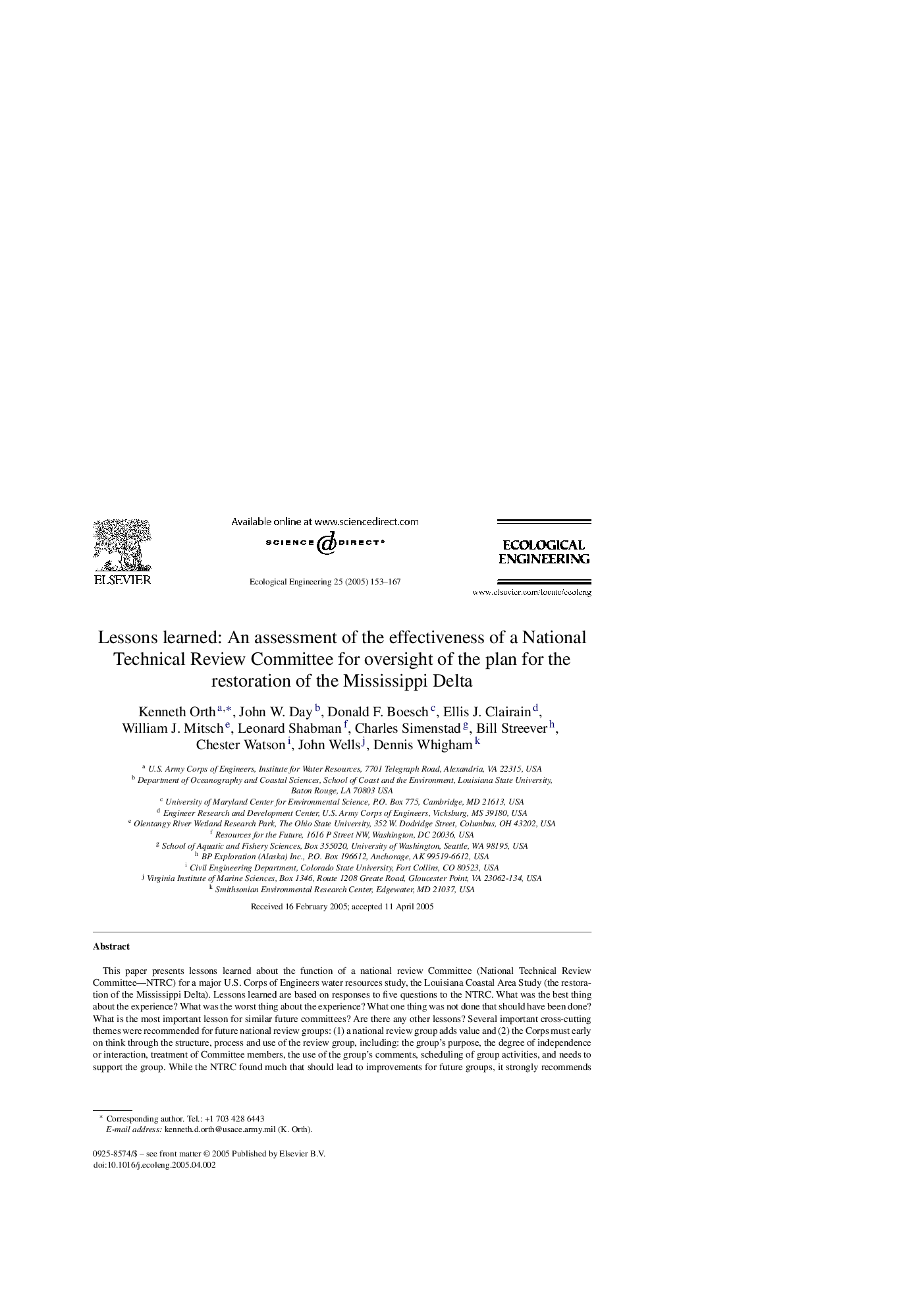| Article ID | Journal | Published Year | Pages | File Type |
|---|---|---|---|---|
| 9447384 | Ecological Engineering | 2005 | 15 Pages |
Abstract
This paper presents lessons learned about the function of a national review Committee (National Technical Review Committee-NTRC) for a major U.S. Corps of Engineers water resources study, the Louisiana Coastal Area Study (the restoration of the Mississippi Delta). Lessons learned are based on responses to five questions to the NTRC. What was the best thing about the experience? What was the worst thing about the experience? What one thing was not done that should have been done? What is the most important lesson for similar future committees? Are there any other lessons? Several important cross-cutting themes were recommended for future national review groups: (1) a national review group adds value and (2) the Corps must early on think through the structure, process and use of the review group, including: the group's purpose, the degree of independence or interaction, treatment of Committee members, the use of the group's comments, scheduling of group activities, and needs to support the group. While the NTRC found much that should lead to improvements for future groups, it strongly recommends that seeking top professional advice during the course of study is appropriate for the Corps. Committee members found their experiences to be professionally and personally rewarding.
Keywords
Related Topics
Life Sciences
Agricultural and Biological Sciences
Ecology, Evolution, Behavior and Systematics
Authors
Kenneth Orth, John W. Day, Donald F. Boesch, Ellis J. Clairain, William J. Mitsch, Leonard Shabman, Charles Simenstad, Bill Streever, Chester Watson, John Wells, Dennis Whigham,
